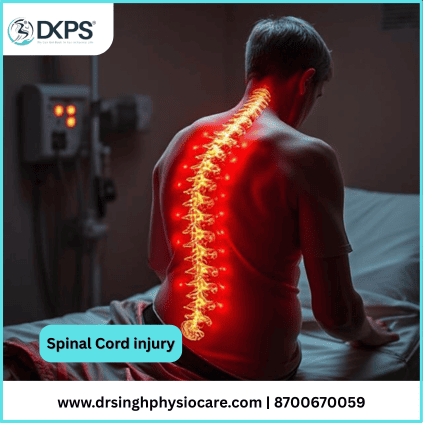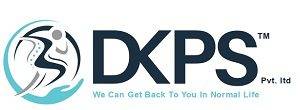- Home
- About Us
- DKPS Dealing
- BLOG
- Delhi NCR
- Delhi
- Physiotherapy at Home Near Me | Physiotherapist in South Delhi
- Best Chiropractor in Delhi
- Physiotherapist in Delhi
- Cupping Therapy in Delhi
- Home Nursing Services in Delhi
- Needle Therapy for Back Pain
- Sports Injury Physiotherapy
- Best Physiotherapist Visit at Home in Rohini Sector 24
- Physiotherapy at Home In Rohini Sector 9 |
- Physiotherapist in Pitampura | Physiotherapy at Home in Pitampura
- Physiotherapy at home in Rohini sector 29
- Physiotherapist in Paschim Vihar
- Physio home visit | Home Visit Physiotherapy |
- Physiotherapist in Saket | Best Physiotherapist in Saket |
- Physiotherapist In Janakpuri | Best Physiotherapist in Janakpuri |
- Best Physiotherapist in Punjabi Bagh | Punjabi Bagh Physiotherapist |
- Best Physiotherapist Service at Home in Dwarka, Delhi
- Best Physiotherapist in Chandigarh at Home Visit
- Faridabad
- Gurugram
- Noida
- Best Physiotherapy Gorakhpur
- Best Physiotherapist in Lucknow | Physiotherapist in Lucknow near me |
- Delhi
- Mumbai
- Delhi NCR
- Department
- Doctors
- Gallery
- Packages
- Contact Us
- Home
- About Us
- DKPS Dealing
- BLOG
- Delhi NCR
- Delhi
- Physiotherapy at Home Near Me | Physiotherapist in South Delhi
- Best Chiropractor in Delhi
- Physiotherapist in Delhi
- Cupping Therapy in Delhi
- Home Nursing Services in Delhi
- Needle Therapy for Back Pain
- Sports Injury Physiotherapy
- Best Physiotherapist Visit at Home in Rohini Sector 24
- Physiotherapy at Home In Rohini Sector 9 |
- Physiotherapist in Pitampura | Physiotherapy at Home in Pitampura
- Physiotherapy at home in Rohini sector 29
- Physiotherapist in Paschim Vihar
- Physio home visit | Home Visit Physiotherapy |
- Physiotherapist in Saket | Best Physiotherapist in Saket |
- Physiotherapist In Janakpuri | Best Physiotherapist in Janakpuri |
- Best Physiotherapist in Punjabi Bagh | Punjabi Bagh Physiotherapist |
- Best Physiotherapist Service at Home in Dwarka, Delhi
- Best Physiotherapist in Chandigarh at Home Visit
- Faridabad
- Gurugram
- Noida
- Best Physiotherapy Gorakhpur
- Best Physiotherapist in Lucknow | Physiotherapist in Lucknow near me |
- Delhi
- Mumbai
- Delhi NCR
- Department
- Doctors
- Gallery
- Packages
- Contact Us
Spinal Cord Injury Physiotherapy at Dr. Singh Physiocare (DKPS)
- Home
- Spinal Cord Injury Physiotherapy at Dr. Singh Physiocare (DKPS)

Spinal Cord Injury Physiotherapy at Dr. Singh Physiocare
Spinal cord injuries (SCI) can be life-altering, but with timely and focused physiotherapy, many patients can regain function, independence, and a better quality of life. At Dr. Singh Physiocare, our team offers customized physiotherapy programs to support the full rehabilitation journey of spinal cord injury patients—whether you visit our clinic, book a home session, or prefer an online consultation.
We follow a systematic recovery plan that emphasizes physical rehabilitation, emotional support, and patient education. This ensures not just recovery from the injury, but also long-term lifestyle improvements.
Importance of Early Physiotherapy
One of the most important aspects of spinal cord injury management is early physiotherapy intervention. The sooner physiotherapy begins, the
the better the chances of preserving muscle strength, joint flexibility, and preventing secondary complications like bedsores, infections, or muscle atrophy.Early physiotherapy also helps in:
Preventing joint stiffness and contractures
Improving blood circulation and heart health
Enhancing respiratory function
Reducing pain and discomfort
Goals of Spinal Cord Injury Rehabilitation
The main objectives of our spinal cord injury rehab plan include:
Restoring lost strength and mobility
Improving coordination and hand-eye function
Enhancing balance and body control
Supporting independent daily living
Preventing complications and secondary injuries
Boosting emotional well-being and confidence
Our multidisciplinary team includes physiotherapists, neuro-specialists, and rehabilitation experts who work together to help patients regain control over their lives.
Our Approach to Spinal Cord Injury Physiotherapy
1. Muscle Strengthening and Maintenance
Muscle atrophy and weakness are common after SCI. Our strengthening exercises are designed to target weakened muscle groups, preserve muscle mass, and support basic movements like sitting, lifting arms, or standing with assistance.
2. Hand-Eye Coordination Training
We focus on improving coordination and fine motor skills. Functional training activities such as reaching, gripping, writing, or feeding oneself are included in the rehab program.
3. Adaptive Technique Training
Every patient is taught practical ways to perform daily tasks using adaptive tools or assistive devices. This includes wheelchair navigation, dressing techniques, and hygiene management tailored to each person’s capabilities.
4. Balance and Mobility Rehabilitation
Our mobility training helps patients improve posture, trunk control, and balance. Whether it’s transferring from bed to chair or learning to stand with support, our plan includes guided, progressive exercises.
5. Bed Mobility and Transfer Training
We provide training in movements like rolling in bed, sitting up from a lying position, and safe transfers to a wheelchair or commode. These are essential for daily independence.
6. Contracture Prevention and Management
We use manual stretching and physiotherapeutic exercises to prevent and manage joint stiffness and muscle shortening, known as contractures, which can otherwise lead to long-term deformities.
7. Bladder and Bowel Management
Spinal cord injury can affect bladder and bowel control. Our rehabilitation team provides specific training to help patients develop a regular toileting routine using techniques like timed voiding or pelvic floor strengthening.
8. Respiratory Support
In high-level spinal cord injuries, lung capacity and breathing may be compromised. We offer breathing exercises and chest physiotherapy to strengthen respiratory muscles and clear secretions.
9. Cardiovascular Conditioning
Aerobic exercises help in improving heart function and stamina. Our physiotherapy plans incorporate mild-to-moderate cardio workouts based on individual health conditions.
10. Psychological and Emotional Support
Mental health support is a key part of our rehabilitation approach. We provide counseling sessions and peer support to help patients and their families cope with emotional stress, anxiety, or depression that often accompanies SCI.
Holistic Approach to Recovery
At Dr. Singh Physiocare, our philosophy is to treat the patient as a whole—not just the injury. We understand that spinal cord injury affects every aspect of life, so our treatment model covers physical, emotional, and social recovery. Our team constantly monitors progress through milestone-based goals that help track recovery in measurable steps.
Whether your goal is to walk again, regain hand function, or simply live independently with a wheelchair, we are here to support you through every phase of rehabilitation.
Available Options
We offer flexible treatment options across Delhi NCR including:
· In-clinic advanced physiotherapy
· Physiotherapy home visits by certified experts
· Online consultations and exercise plans
Services Also Include
· Comprehensive assessment for spinal cord injury
· Spinal cord injury physiotherapy protocol design
· Personalized recovery plans
· Detailed spinal cord injury case studies and analysis
· Long-term lifestyle and mobility education
Searching for “Spinal Cord Injury Physiotherapy Near Me”?
If you are based in Rohini, Pitampura, or anywhere in Delhi NCR, our home visit services can bring expert care directly to your doorstep. We understand the mobility challenges faced by spinal cord injury patients, which is why we offer accessible, convenient therapy in the comfort of your home.
Contact Us Today
Phone/WhatsApp: 8700670059
Website: https://drsinghphysiocare.com
Location: Available across Rohini, Pitampura, and nearby sectors
Frequently Asked Questions (FAQs)
Q1. When should physiotherapy start after a spinal cord injury?
Answer: Physiotherapy should begin as early as possible—ideally within a few days after the injury once the patient is stable. Early intervention helps preserve muscle function, prevent complications, and promote faster recovery.
Q2. What type of physiotherapy is used for spinal cord injury?
Answer: Treatment usually includes stretching, strength training, aerobic exercises, coordination activities, balance training, and use of physical modalities like heat therapy and electrical stimulation. Each plan is personalized based on the level and severity of the injury.
Q3. Can spinal cord injury patients recover fully with physiotherapy?
Answer: Recovery depends on the severity and level of the spinal injury. While complete recovery may not be possible in all cases, physiotherapy significantly improves mobility, independence, and quality of life. It also prevents further complications and promotes emotional wellness.
Other Places where we provide Physiotherapy Services at Home
- Physiotherapy at home in Rohini sector 24
- Physiotherapy at home in Rohini
- Physiotherapy at home in Budh vihar
- Physiotherapy at home in pitampura
- Physiotherapy at home in Panjabi bagh
- Physiotherapy at home in Rani bagh
- Physiotherapy at home in Ashok vihar
- Physiotherapy at home in shastri nagar Delhi
- Physiotherapy at home in inderlok Delhi
- Physiotherapy at home in kanhaiya Nagar Delhi
- Physiotherapy at home in paschim vihar
- Physiotherapy at home in Vikas Puri
- Physiotherapy at home in Karol bagh
- Physiotherapy at home in Rajendra place delhi
- Physiotherapy at home in Patel Nagar Delhi
- Physiotherapy at home in Shadipur delhi
- Physiotherapy at home in Kirti Nagar Delhi
- Physiotherapy at home in moti nagar Delhi
- Physiotherapy at home in Noida
- Physiotherapy at home in Gaziyabad
- Physiotherapy at home in Gurgaon
- Physiotherapy at home in Faridabad
- Physiotherapy at home in burari
- Physiotherapy at home in sangam vihar
- Physiotherapy at home in Gandhi vihar
- Physiotherapy at home in mukherjee nagar
- Physiotherapy at home in jagatpur village
- Physiotherapy at home in gopalpur
- Physiotherapy at home in civil line
- Physiotherapy at home in delhi university
- Physiotherapy at home in Mumbai
- Physiotherapy at home in GTB nagar
- Physiotherapy at home in model town
- Physiotherapy at home in kamla nagar
- Physiotherapy at home in nirankari colony
- Physiotherapy at home in Chauhanpatti
- Physiotherapy at home at khjuri khas
- Physiotherapy at home in Bhajanpura
- Physiotherapy at home in Ankur vihar
- Physiotherapy at home in tronica city
- Physiotherapy at home in Jhaghirpuri
- Physiotherapy at home in Okhla delhi
- Physiotherapy at home in shaeen bagh delhi
- Physiotherapy at home in houz khash Delhi
- Physiotherapy at home in Narela delhi
Find Complete Relief from Dr. Singh Physiocare Experts
If you think you are facing similar conditions, or have suffered from them in the past,
please contact Dr. Singh Physiocare, team to schedule an appointment with the Best Physiotherapist in Delhi, Noida, Greater noida, Gurgaon,Ghaziabad,Mumbai etc at : 8700670059 or 9953024412
Book You Appointment Today:
Additional Links
For More Articles
DKPS Physiotherapy services at Home
DWARKA | PASCHIM VIHAR | PEERAGARHI | VIKASPURI | PITAMPURA | KOHAT ENCLAVE | RANI BAGH | ROHINI | JANAKPURI | MANGOLPURI | PUNJABI BAGH | NANGLOI | BAHADURGARH | NOIDA | GREATER NOIDA| GHAZIABAD | GURGAON | FARIDABAD | MUMBAI | GORAKHPUR | LUCKNOW | CHANDIGARH |
